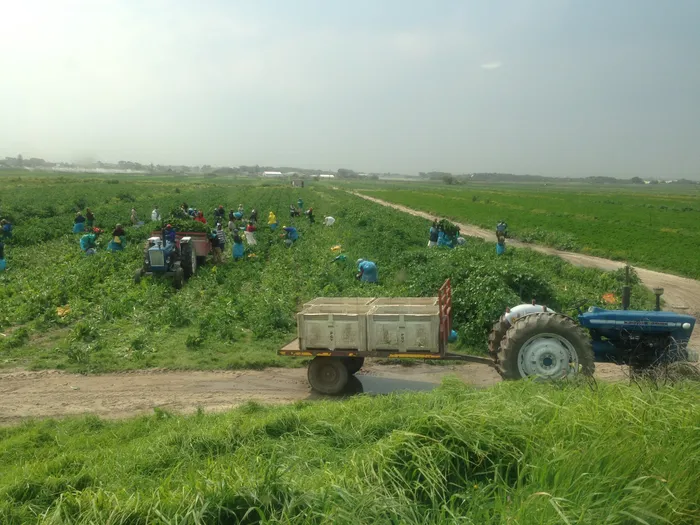PHA zoning fight far from over

The PHA provides food security for thousands of families across Cape Town and there have been renewed calls to protect the Cape Flats Aquifer and stop development on the site. Picture: Supplied
The battle to protect agricultural land in the Philippi Horticultural Area (PHA) from being rezoned for urban development is far from over.
This was the sentiment at a press conference held last month by the PHA Food and Farming Campaign (FFC), an activist group that has been at the forefront of a legal struggle against multiple large-scale property developments in Philippi and has stopped five out of six proposed developments over the past 16 years.
Nazeer Sonday, chairperson of the FFC, said the last of the six developments, by Oakland City Development, was the last one standing and warned potential investors that the proposed development would not go forward.
Initial plans for the Oakland development, which spans 480 hectares in Philippi, include flats and houses which could potentially create nearly 15 000 residential units as well as public amenities including schools, a clinic and a community centre as well as commercial and industrial facilities.
However, planning for the development came to a halt in 2020 after a court battle at the Western Cape High Court ended in a landmark ruling that favoured the FFC’s fight to keep the PHA non-urbanised.
In the ruling Judge Kate Savage found that there had not been proper consideration of the impact a housing development would have on the Cape Flats Aquifer.
The aquifer, which lies beneath the PHA, supplies groundwater for the 3 000 hectare of Philippi land and plays a vital role in the local food economy of greater Cape Town, supplying about half the city’s fresh produce.
At the press conference held on Tuesday October 22, the FFC raised concerns that the rezoning proposal, which has since been amended, is being reconsidered by the City of Cape Town.
“Will the City approve the rezone and become complicit in land speculation that will delete the city's food, water supply, delete 3000 direct and 30 000 indirect jobs, and the city's climate resilience?” asked Mr Sonday.
FFC volunteer Susanna Coleman called for a re-evaluation of the development's impact amid water scarcity and climate change. “In a time of climate change, drought-proof farmland should be preserved for current and future generations. Townships in Cape Town suffer from 40-60% food insecurity, and natural resources should be preserved for the most vulnerable in our society,” she said.
Eddie Andrews, mayoral committee member for spatial planning and environment, denied the claims and assured that no decision had yet been made: “The appeal decision, as required in the outcome of the high court proceedings, has, to date, not been made by the City’s appeal authority.”
The report from the development management department, which would take into consideration the additional specialist report, the appeal received and the applicant’s response thereto, was currently in the process of being drafted and would serve before the general appeal authority once finalised, Mr Andrews said.
Mr Andrews emphasised that this was not a new proposal but a reconsideration of the application previously evaluated in June 2017.
Oakland City Development did not respond to Southern Mail’s enquiry.
Related Topics: